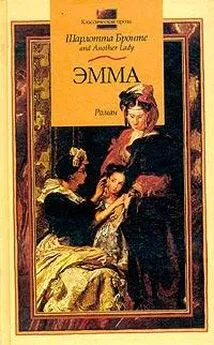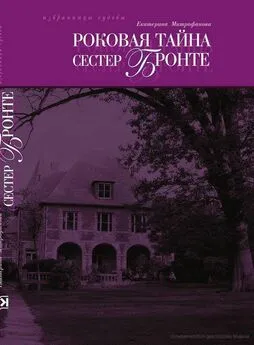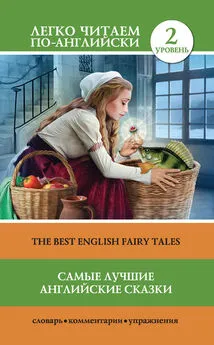Шарлотта Бронте - Лучшие романы сестер Бронте / The best of the Brontë sisters
- Название:Лучшие романы сестер Бронте / The best of the Brontë sisters
- Автор:
- Жанр:
- Издательство:Литагент «Эксмо»334eb225-f845-102a-9d2a-1f07c3bd69d8
- Год:2013
- Город:Москва
- ISBN:978-5-699-61892-7
- Рейтинг:
- Избранное:Добавить в избранное
-
Отзывы:
-
Ваша оценка:
Шарлотта Бронте - Лучшие романы сестер Бронте / The best of the Brontë sisters краткое содержание
«Иностранный язык: учимся у классиков» – это только оригинальные тексты лучших произведений мировой литературы. Эти книги станут эффективным и увлекательным пособием для изучающих иностранный язык на хорошем «продолжающем» и «продвинутом» уровне. Они помогут эффективно расширить словарный запас, подскажут, где и как правильно употреблять устойчивые выражения и грамматические конструкции, просто подарят радость от чтения. В конце книги дана краткая информация о культуроведческих, страноведческих, исторических и географических реалиях описываемого периода, которая поможет лучше ориентироваться в тексте произведения.
Серия «Иностранный язык: учимся у классиков» адресована широкому кругу читателей, хорошо владеющих английским языком и стремящихся к его совершенствованию.
Лучшие романы сестер Бронте / The best of the Brontë sisters - читать онлайн бесплатно ознакомительный отрывок
Интервал:
Закладка:
Thus, I flatter myself, I shall secure him from this one vice; and for the rest, if on his father’s return I find reason to apprehend that my good lessons will be all destroyed – if Mr. Huntingdon commence again the game of teaching the child to hate and despise his mother, and emulate his father’s wickedness – I will yet deliver my son from his hands. I have devised another scheme that might be resorted to in such a case; and if I could but obtain my brother’s consent and assistance, I should not doubt of its success. The old hall where he and I were born, and where our mother died, is not now inhabited, nor yet quite sunk into decay, as I believe. Now, if I could persuade him to have one or two rooms made habitable, and to let them to me as a stranger, I might live there, with my child, under an assumed name, and still support myself by my favourite art. He should lend me the money to begin with, and I would pay him back, and live in lowly independence and strict seclusion, for the house stands in a lonely place, and the neighbourhood is thinly inhabited, and he himself should negotiate the sale of my pictures for me. I have arranged the whole plan in my head: and all I want is to persuade Frederick to be of the same mind as myself. He is coming to see me soon, and then I will make the proposal to him, having first enlightened him upon my circumstances sufficiently to excuse the project.
Already, I believe, he knows much more of my situation than I have told him. I can tell this by the air of tender sadness pervading his letters; and by the fact of his so seldom mentioning my husband, and generally evincing a kind of covert bitterness when he does refer to him; as well as by the circumstance of his never coming to see me when Mr. Huntingdon is at home. But he has never openly expressed any disapprobation of him or sympathy for me; he has never asked any questions, or said anything to invite my confidence. Had he done so, I should probably have had but few concealments from him. Perhaps he feels hurt at my reserve. He is a strange being; I wish we knew each other better. He used to spend a month at Staningley every year, before I was married; but, since our father’s death, I have only seen him once, when he came for a few days while Mr. Huntingdon was away. He shall stay many days this time, and there shall be more candour and cordiality between us than ever there was before, since our early childhood. My heart clings to him more than ever; and my soul is sick of solitude.
April 16th. – He is come and gone. He would not stay above a fortnight. The time passed quickly, but very, very happily, and it has done me good. I must have a bad disposition, for my misfortunes have soured and embittered me exceedingly: I was beginning insensibly to cherish very unamiable feelings against my fellow-mortals, the male part of them especially; but it is a comfort to see there is at least one among them worthy to be trusted and esteemed; and doubtless there are more, though I have never known them, unless I except poor Lord Lowborough, and he was bad enough in his day. But what would Frederick have been, if he had lived in the world, and mingled from his childhood with such men as these of my acquaintance? and what will Arthur be, with all his natural sweetness of disposition, if I do not save him from that world and those companions? I mentioned my fears to Frederick, and introduced the subject of my plan of rescue on the evening after his arrival, when I presented my little son to his uncle.
‘He is like you, Frederick,’ said I, ‘in some of his moods: I sometimes think he resembles you more than his father; and I am glad of it.’
‘You flatter me, Helen,’ replied he, stroking the child’s soft, wavy locks.
‘No, you will think it no compliment when I tell you I would rather have him to resemble Benson than his father.’ He slightly elevated his eyebrows, but said nothing.
‘Do you know what sort of man Mr. Huntingdon is?’ said I.
‘I think I have an idea.’
‘Have you so clear an idea that you can hear, without surprise or disapproval, that I meditate escaping with that child to some secret asylum, where we can live in peace, and never see him again?’
‘Is it really so?’
‘If you have not,’ continued I, ‘I’ll tell you something more about him’; and I gave a sketch of his general conduct, and a more particular account of his behaviour with regard to his child, and explained my apprehensions on the latter’s account, and my determination to deliver him from his father’s influence.
Frederick was exceedingly indignant against Mr. Huntingdon, and very much grieved for me; but still he looked upon my project as wild and impracticable. He deemed my fears for Arthur disproportioned to the circumstances, and opposed so many objections to my plan, and devised so many milder methods for ameliorating my condition, that I was obliged to enter into further details to convince him that my husband was utterly incorrigible, and that nothing could persuade him to give up his son, whatever became of me, he being as fully determined the child should not leave him, as I was not to leave the child; and that, in fact, nothing would answer but this, unless I fled the country, as I had intended before. To obviate that, he at length consented to have one wing of the old hall put into a habitable condition, as a place of refuge against a time of need; but hoped I would not take advantage of it unless circumstances should render it really necessary, which I was ready enough to promise: for though, for my own sake, such a hermitage appears like paradise itself, compared with my present situation, yet for my friends’ sakes, for Milicent and Esther, my sisters in heart and affection, for the poor tenants of Grassdale, and, above all, for my aunt, I will stay if I possibly can.
July 29th. – Mrs. Hargrave and her daughter are come back from London. Esther is full of her first season in town; but she is still heart-whole and unengaged. Her mother sought out an excellent match for her, and even brought the gentleman to lay his heart and fortune at her feet; but Esther had the audacity to refuse the noble gifts. He was a man of good family and large possessions, but the naughty girl maintained he was old as Adam, ugly as sin, and hateful as – one who shall be nameless.
‘But, indeed, I had a hard time of it,’ said she: ‘mamma was very greatly disappointed at the failure of her darling project, and very, very angry at my obstinate resistance to her will, and is so still; but I can’t help it. And Walter, too, is so seriously displeased at my perversity and absurd caprice, as he calls it, that I fear he will never forgive me – I did not think he could be so unkind as he has lately shown himself. But Milicent begged me not to yield, and I’m sure, Mrs. Huntingdon, if you had seen the man they wanted to palm upon me, you would have advised me not to take him too.’
‘I should have done so whether I had seen him or not,’ said I; ‘it is enough that you dislike him.’
‘I knew you would say so; though mamma affirmed you would be quite shocked at my undutiful conduct. You can’t imagine how she lectures me: I am disobedient and ungrateful; I am thwarting her wishes, wronging my brother, and making myself a burden on her hands. I sometimes fear she’ll overcome me after all. I have a strong will, but so has she, and when she says such bitter things, it provokes me to such a pass that I feel inclined to do as she bids me, and then break my heart and say, “There, mamma, it’s all your fault!”’
‘Pray don’t!’ said I. ‘Obedience from such a motive would be positive wickedness, and certain to bring the punishment it deserves. Stand firm, and your mamma will soon relinquish her persecution; and the gentleman himself will cease to pester you with his addresses if he finds them steadily rejected.’
‘Oh, no! mamma will weary all about her before she tires herself with her exertions; and as for Mr. Oldfield, she has given him to understand that I have refused his offer, not from any dislike of his person, but merely because I am giddy and young, and cannot at present reconcile myself to the thoughts of marriage under any circumstances: but by next season, she has no doubt, I shall have more sense, and hopes my girlish fancies will be worn away. So she has brought me home, to school me into a proper sense of my duty, against the time comes round again. Indeed, I believe she will not put herself to the expense of taking me up to London again, unless I surrender: she cannot afford to take me to town for pleasure and nonsense, she says, and it is not every rich gentleman that will consent to take me without a fortune, whatever exalted ideas I may have of my own attractions.’
‘Well, Esther, I pity you; but still, I repeat, stand firm. You might as well sell yourself to slavery at once, as marry a man you dislike. If your mother and brother are unkind to you, you may leave them, but remember you are bound to your husband for life.’
‘But I cannot leave them unless I get married, and I cannot get married if nobody sees me. I saw one or two gentlemen in London that I might have liked, but they were younger sons, and mamma would not let me get to know them – one especially, who I believe rather liked me – but she threw every possible obstacle in the way of our better acquaintance. Wasn’t it provoking?’
‘I have no doubt you would feel it so, but it is possible that if you married him, you might have more reason to regret it hereafter than if you married Mr. Oldfield. When I tell you not to marry without love, I do not advise you to marry for love alone: there are many, many other things to be considered. Keep both heart and hand in your own possession, till you see good reason to part with them; and if such an occasion should never present itself, comfort your mind with this reflection, that though in single life your joys may not be very many, your sorrows, at least, will not be more than you can bear. Marriage may change your circumstances for the better, but, in my private opinion, it is far more likely to produce a contrary result.’
‘So thinks Milicent; but allow me to say I think otherwise. If I thought myself doomed to old-maidenhood, I should cease to value my life. The thoughts of living on, year after year, at the Grove – a hanger-on upon mamma and Walter, a mere cumberer of the ground (now that I know in what light they would regard it), is perfectly intolerable; I would rather run away with the butler.’
‘Your circumstances are peculiar, I allow; but have patience, love; do nothing rashly. Remember you are not yet nineteen, and many years are yet to pass before anyone can set you down as an old maid: you cannot tell what Providence may have in store for you. And meantime, remember you have a right to the protection and support of your mother and brother, however they may seem to grudge it.’
‘You are so grave, Mrs. Huntingdon,’ said Esther, after a pause. ‘When Milicent uttered the same discouraging sentiments concerning marriage, I asked if she was happy: she said she was; but I only half believed her; and now I must put the same question to you.’
‘It is a very impertinent question,’ laughed I, ‘from a young girl to a married woman so many years her senior, and I shall not answer it.’
‘Pardon me, dear madam,’ said she, laughingly throwing herself into my arms, and kissing me with playful affection; but I felt a tear on my neck, as she dropped her head on my bosom and continued, with an odd mixture of sadness and levity, timidity and audacity, – ‘I know you are not so happy as I mean to be, for you spend half your life alone at Grassdale, while Mr. Huntingdon goes about enjoying himself where and how he pleases. I shall expect my husband to have no pleasures but what he shares with me; and if his greatest pleasure of all is not the enjoyment of my company, why, it will be the worse for him, that’s all.’
Читать дальшеИнтервал:
Закладка:










